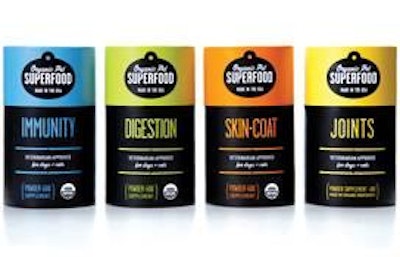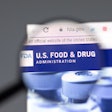
Nutritional supplements for pets have become a fast growing business, as pet owners seek out health products for their cute companions that mimic those they use for themselves. Petfood supplement products are also adapting to the uncertain economy by addressing the all-important issue of palatability. No longer just available in pill form, nutraceuticals and functional ingredients are appearing in toppers, gravies, foods and treats. Pet products that are well formulated and contain ingredients that target the specific physiological (and even psychological) needs of today's pet are enticing to an entire population of pet parents. As steadily as the supplement market has grown (see Figure 1), the regulatory gray area surrounding supplements for companion animals continues to constrict the market. Will regulation changes need to happen for this market to continue to gain?
With a worldwide recession still clinging to consumer's coat tails, what compels pet owners to pay a premium for supplements? "Pet owners purchase supplements to ensure their pets receive the proper nutrition, which might be lacking in off-the-shelf petfoods," explains Dr. L. Phillips Brown, DVM, vice president of R&D for Nutri-Vet Animal Health Care Products. "Even though a plethora of lifestyle and lifestage petfoods are marketed, some veterinarians worry that such foods provide only basic protein, fat and fiber, plus a few vitamins and minerals." Other drivers behind consumers with critters searching out functional ingredients for their pets include:
- The growing elderly pet population. Older animals are prone to many of the same types of chronic conditions that plague elderly people, including cancer, cardiovascular disease, arthritis, cataracts and even thinning hair. Pet owners often choose supplementation to help maintain health and ease age-related aches and pains in their aging companions.
- Rising veterinary healthcare costs . Just as consumers are looking to reduce their own healthcare costs by purchasing natural foods and nutritional supplements, they are equally interested in taking charge of the health of their dogs, cats and other companion animals by purchasing products that promote health and vitality.
- The perception of natural ingredients as safer alternatives to pharmaceuticals. Nutraceuticals rarely cause side effects or interact with prescription drugs, and supplements have been shown to be safe if used judiciously. While there are a few reported adverse events with supplements, they don't compare to the potential adverse reactions of pharmaceuticals.
According to Patrick Rea, publisher and editorial director of the Nutrition Business Journal, the animal nutrition industry only makes up about 6% of the entire US$45 billion pet industry, but within that small nutrition sector, pet supplements make up exactly half of all products (see Figure 2). More than a quarter (28%) of companion animal supplements are sold through veterinarians, with specialty pet store chains, the Internet and mail order catalogs combined make up for 30% of retail sales.
Dietary supplements for animals such as vitamin and mineral products have been marketed for many years. Most of these products include ingredients that are approved food additives, generally recognized as safe (GRAS) substances, or ingredients listed in the Official Publication of the Association of American Feed Control Officials (AAFCO), according to the Food and Drug Administration (FDA) . A few years ago it was feared that over-the-counter sales of animal supplements would be prohibited because they were often positioned as curative rather than preventive. Today, FDA accepts the marketing of oral supplements for animals provided there is a "recognized benefit, purpose or utility" and they are not a substitute for a complete and balanced diet or represented to prevent or cure disease.
In 2001, manufacturers and suppliers of nutritional supplements for companion animals and wildlife joined together to form the not-for-profit National Animal Supplement Council (NASC), a self-policing body that works closely with FDA-CVM and AAFCO to establish regulatory guidelines that are fair, reasonable, responsible and nationally consistent and serve the best interests of animals. The cornerstone of the NASC is CompliancePlus, a program that provides a framework for product quality assurance and labeling guidelines, as well as a system for supplement-associated adverse event reporting.
According to a Nutrition Business Journal survey, 74% of respondents were not satisfied with current regulations of pet supplements and said they needed improvement. When asked what they thought the most crucial issue that will affect the growth of the animal health and nutrition industry in the next several years was, answers varied. Some highlights include:
- Regulation and misleading claims;
- Consumer education and establishment of trust;
- Continued media coverage of the importance of animal health and nutrition;
- Recommendations by vets; and
- More affordable non-drug therapies for prevention and healing.
Following the lead of human dietary supplements for conditions that include cardiovascular, bone and joint, eye and cognitive health, condition-specific pet supplements are one of the fastest growing segments in the pet nutraceuticals market. Supplements that benefit pet joint health, skin and coat condition and anxiety are showing the most growth. Petfood manufacturers recognize the importance of supplemental nutrients in promoting health, as well as reducing the effects of certain conditions in animals. Condition-specific ingredients, such as glucosamine, chondroitin, carnitine, antioxidants, prebiotics and probiotics, are commonly used as marketing tools to suggest that such "fortified" foods can address special health needs.
Pet owners are demanding animal supplements and retailers are responding by focusing on quality, selection and a willingness to educate themselves as to the science behind condition-specific supplements. As a result, pet supplements are easier to find and easier to understand. The health consciousness that has become the lifestyle choice for millions of today's consumers, combined with such trends as humanizing and indulging pets, is propelling sales of animal supplements forward. The increased emphasis on "healthy" products by mass marketers, independent retailers and large pet specialty stores, coupled with the new standards of quality implemented by the NASC, is further boosting awareness (and credibility) of animal supplements.


















